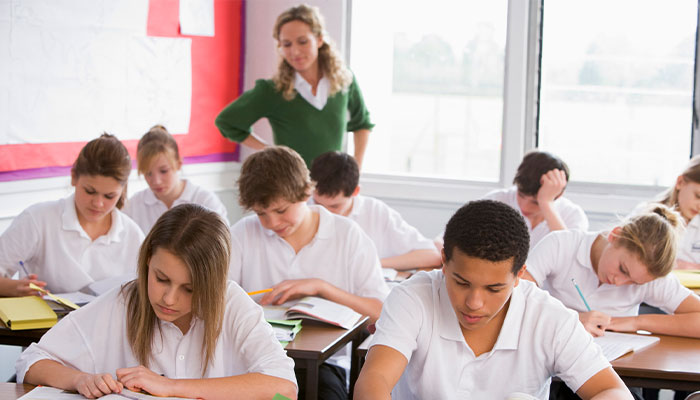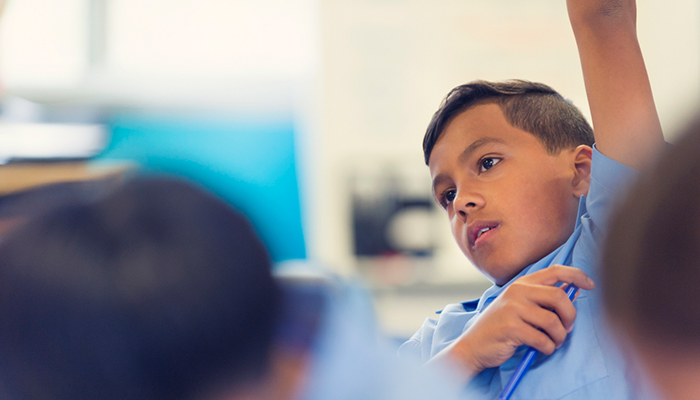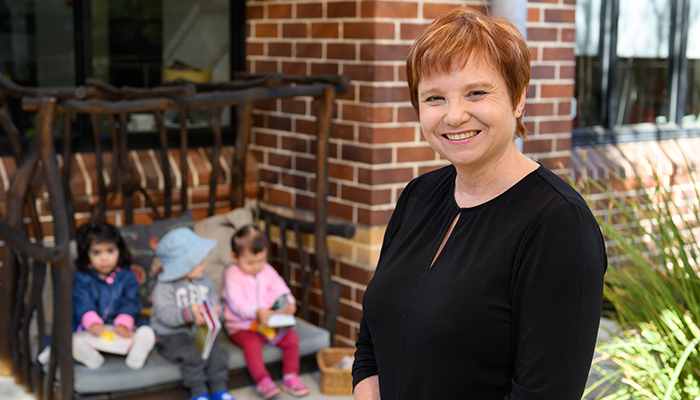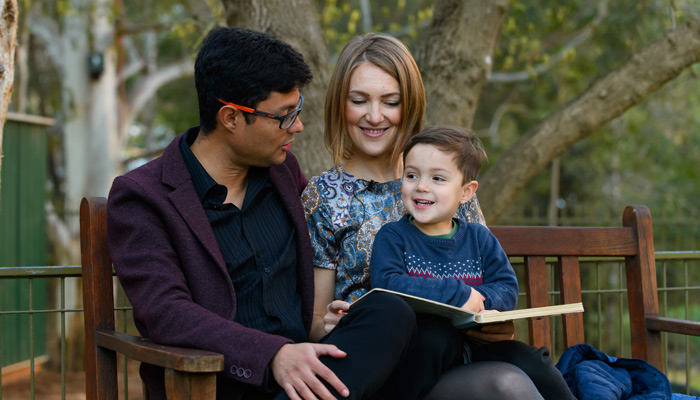A positive relationship with teachers means a student is more likely to complete year 12. Students who finish year 12 are also less likely to go to prison or face unemployment, more likely to go into tertiary education and tend to earn more than those who don’t finish. They also report better health outcomes.

Keeping track: Beginning in Year 10, the relationships that students have with their teachers have a powerful impact, Dr Burns' analysis shows.
The findings, based on 4700 students’ survey responses, underscore the importance of encouraging both teachers and students to forge better relationships, says Dr Emma Burns of Macquarie University, who conducted the analysis.
“Completing high school is super important for long-term life outcomes,” says Burns, a Lecturer in the School of Education. “There’s a lot of personal and societal benefits as well as being able to contribute to the economy.”
The federal government-managed 2009 Longitudinal Survey of Australian Youth, which started when participants were 15 years old, kept track of students over the following 10 years, contacting them annually until they turned 25.
Those relationships have protective effects over time. It stops students disengaging and can really bolster them up for years.
Among many other questions, students were asked to rate their relationships with all their teachers and asked whether they received support from them, if they felt the teachers cared about them and if they gave them constructive feedback.
By collecting information about the education, training, employment and social development of the students, the survey’s aim was to study the students’ transitions from school to further education and into the workplace.
Approximately 88 per cent of students finish Year 12 with Indigenous faring worse, according to the Australian Institute of Health and Welfare – still, Australia sits among the best in the world, on par with countries such as the US or Canada.
Boost for low-achieving students
When students have a positive relationship with their teachers, it improves their self esteem and outlook. “It’s a motivational process,” says Burns. “You’re more likely to internalise more positive attitudes and more positive beliefs about school and about yourself in relation to school.”
Beginning in Year 10, the relationships that students have with their teachers have a powerful impact.
“The relationships don’t just matter for what your plans are in Year 10, but they matter for what your plans are in Year 11 and also in Year 12,” she says.
- UV-detecting 'Sunwatch' a step closer to saving lives
- 'We are living in a sea of microplastics': alarming new study
Burns also focused on low-achieving students and discovered that they benefited more from quality teacher-student relationships than high-achieving students.
“Those relationships have protective effects over time,” she says. “It stops them disengaging and can really bolster them up for years.”
Previous studies had shown that low-achieving students on average had poor relationships with their teachers.
Tips for teachers
Burns acknowledges that it’s very challenging for teachers with 25 to 30 students to form quality relationships with each student. But she suggests that the key is to provide each student with adequate feedback, academic support where needed and appropriate accommodations for lower- and higher-achieving students.

One for all: It can be challenging for teachers to form quality relationships with each student in a big class, but Dr Burns says the key is to provide adequate feedback and academic support.
When speaking with the whole class, teachers should be democratic — and transparent when they handle classroom conflict. They should also interact with students in an age-appropriate way and provide them with explanatory rationale for doing the work.
Burns also advises teachers to take time just to connect with each student as an individual, to build rapport, get to know their interests and find things in the curriculum that are relevant to them – so they’ll be more motivated to do the work.
- Sydney industrial zone goes green in Australia-first study
- Hero volunteers of the AIDS crisis tell their story at last
They should also let the students know they’re there to support them.
Another strategy is for teachers to bring in mentors or role models to engage with students. “The best role models reflect the diversity and gender of the class so that the students can see themselves and the future trajectory,” Burns says.
“There’s no silver bullet to form relationships. Many of my students got into teaching because they had an inspirational teacher – or they had a horrible teacher and want to do better.”
Dr Emma Burns is a Lecturer in the School of Education at Macquarie University.



